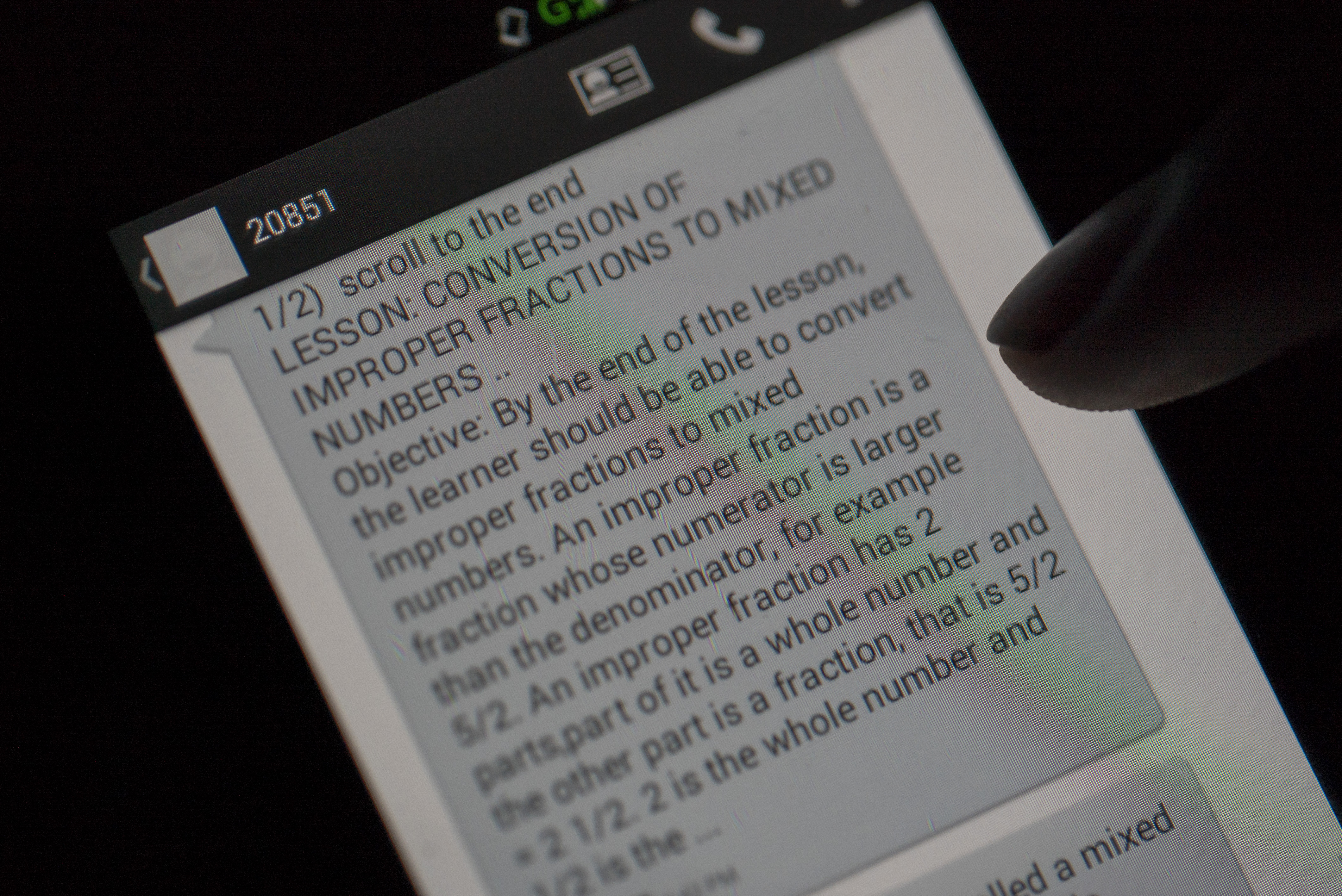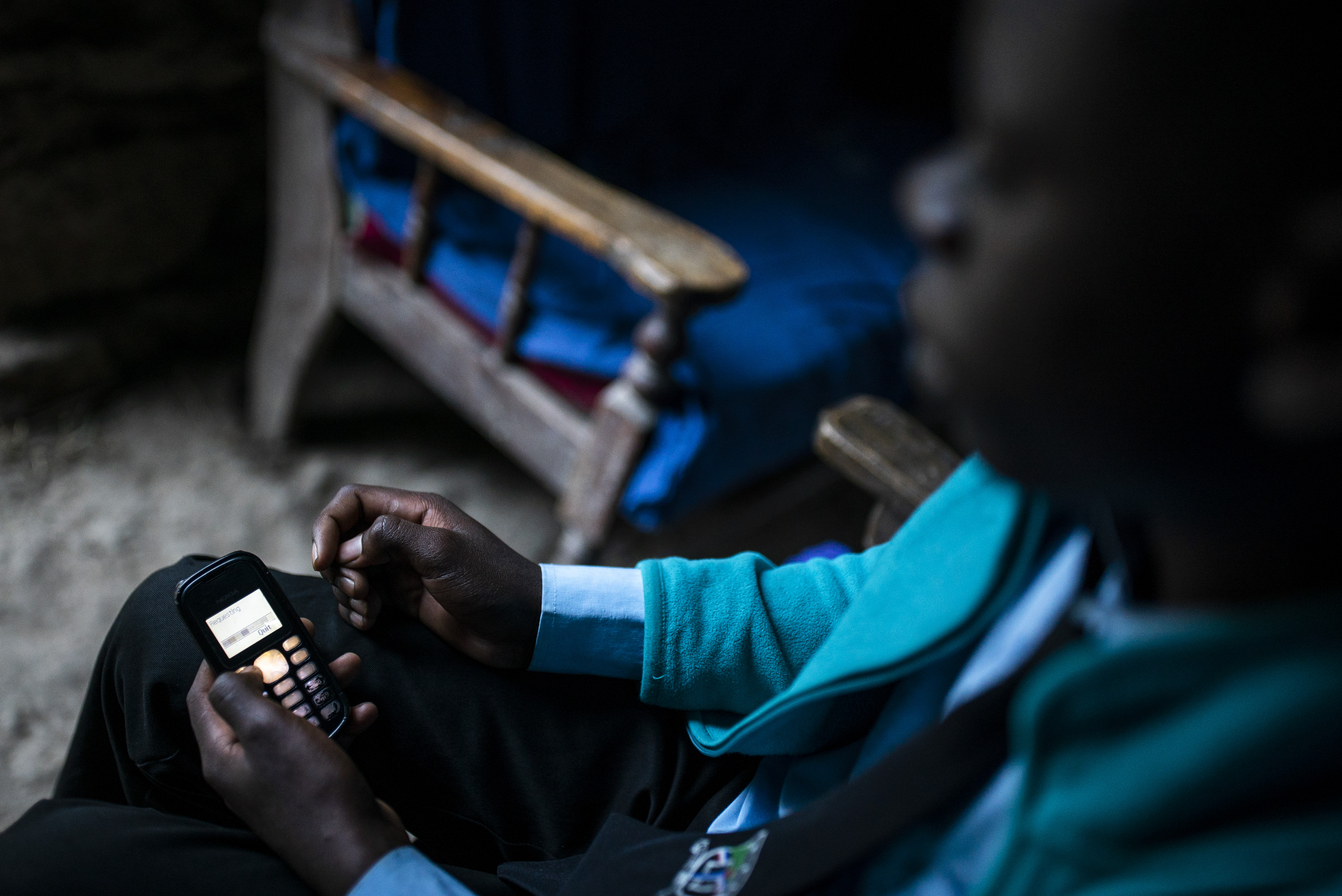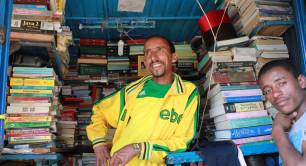'The largest classroom in Africa': How text messages mean millions of children can stay connected to education during Covid-19 school closures
Using ‘dumb’ phones to make children smarter may sound counter-intuitive, but Eneza Education is proving that SMS-based learning is the best way to reach pupils in remote and low-income communities in four African countries. The social enterprise’s usage has quadrupled during the Covid-19 pandemic.
As schools closed in 2020 to curb the spread of Covid-19, authorities around the world implemented remote learning policies, many of which are still in place today. But millions of children are missing out. In sub-Saharan Africa, almost half of schoolchildren, or a total of 121 million pupils, are unable to access remote learning, according to a UNICEF report published in August 2020. In the region, web-based distance learning policies only reach 6% of children, according to the same study.
The need to find alternative means of accessing education is urgent. One solution that has proved successful is an SMS-based learning platform originally developed by Eneza Education in 2013. The social enterprise, which operates in Kenya, Ghana and Côte d’Ivoire, has seen its subscriber base grow four-fold since April, and it is now rolling out its services in Rwanda where, with the help of a grant from the Mastercard Foundation, pupils will be able to access the platform for free.
Hear more from Eneza Education's head of commercial operations in our short video below:
Eneza Education provides affordable educational materials via text message to pupils in primary and secondary schools, to enable them to revise and access help from their teachers without the need for an internet connection. The social enterprise benefits from discounted text-message rates from mobile network provider Safaricom, an early investor in the enterprise, and users pay a subscription fee of 3 Kenyan Shillings (US$0.03) a day, enabling Eneza to be income generating. It then reinvests its profits back into the business.
Eneza is a massive operation. It has reached a total of 10.2 million learners since its creation, 70% of whom live in rural areas. It aims to reach 50 million learners across the continent. “Our mission is to have the largest classroom in Africa,” says Joan Njogu, head of commercial operations at Eneza Education.
Since the start of the pandemic, activity on the platform has rocketed, growing from 500,000 subscribers in April to 2.2 million today. Over that period, Eneza has hired an additional 22 teachers working on its ‘Ask a Teacher’ feature, up from around 30.
Our mission is to have the largest classroom in Africa
With help from Safaricom, the platform was made free to use between April and the end of September, which allowed both students and parents to try the service and appreciate its benefits.
Eneza Education was founded in 2011 by teacher Toni Maraviglia and tech entrepreneur Kago Kagichiri, who were looking for a way to make affordable learning materials widely accessible to Kenyan pupils outside the classroom. When they started looking at the issue, the smartphone penetration rate was only 47%, but at least 70% of homes had access to a basic mobile phone, making SMS the best way to cater for low-income or isolated families which did not have internet access. In partnership with Safaricom, Maraviglia and Kagichiri launched their low-cost SMS learning platform in 2013, and adopted a subscription model, which allows pupils to use the service as much as they want, a year later.

Above: Eneza Education provides text-message based education materials that pupils can access without the need for an internet connection
Eneza has received a mixture of funding and grants from a number of investors, including Safaricom. It is planning to expand further across Central Africa, but there is a lot to consider when expanding into another country, with different educational and regulatory systems creating different challenges, so nothing has been finalised yet, Njogu says.
There are two elements to Eneza’s learning system. The first feature follows the local curriculum, breaking it into a series of bite-size lessons followed by quizzes and feedback. In addition to this, the ‘Ask a Teacher’ feature enables students to send SMS questions to a pool of teachers who respond to them in less than five minutes. Users only need access to a basic phone connected to a mobile network.
Covid has shown students, teachers and parents the need to find an alternative means of finding resources
When Eneza first launched, it faced a lot of scepticism and parents didn’t welcome SMS learning, Njogu explains. “Kids generally take their parents’ phone either to play games or to SMS their friends,” she says. "Parents, at the beginning, didn’t believe they actually learned.” Covid-19 has been a gamechanger in the way people now perceive SMS learning. “One of the things that Covid has done is that it has shown students, teachers and parents the need to find an alternative means of finding resources,” Njogu adds.
She is confident people will continue to use the service after the pandemic. “Schools and parents will still want to have alternative forms of learning which they found during this time, just for their kids to be able to learn when they’re at home,” she says.

Above: Eneza Education's SMS lessons follow the local curriculum and pupils can access additional help from teachers
In Rwanda, upper primary and lower secondary school pupils will be able to access Eneza’s services for free until 31 July 2021. The ‘Ask a Teacher’ feature was launched on 6 October, and full curriculum-aligned lessons and tests were rolled out in November. More than three million Rwandan students in primary and secondary education have been out of school since mid-March, according to the Mastercard Foundation.
It took between three and four months for 100 teachers to create the content of around 5,000 SMS lessons in line with Rwandan curriculum. The SMS service will complement radio and TV lessons broadcast by the Rwanda Education Board.
“Some people say, ‘SMS is not the future,’” says Njogu. “But it is the present. It is a very good intervention, in the present.”
Eneza Education in numbers:
|
All image credits, including those used in the video: Eneza Education. Video produced by Laura Joffre.
Thanks for reading our stories. As an entrepreneur or investor yourself, you'll know that producing quality work doesn't come free. We rely on our subscribers to sustain our journalism – so if you think it's worth having an independent, specialist media platform that covers social enterprise stories, please consider subscribing. You'll also be buying social: Pioneers Post is a social enterprise itself, reinvesting all our profits into helping you do good business, better.



